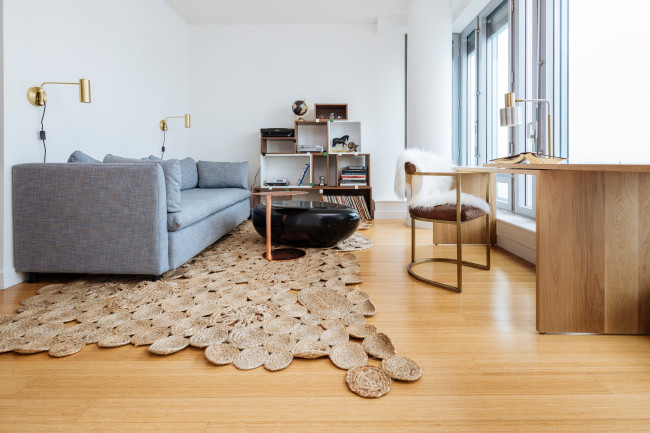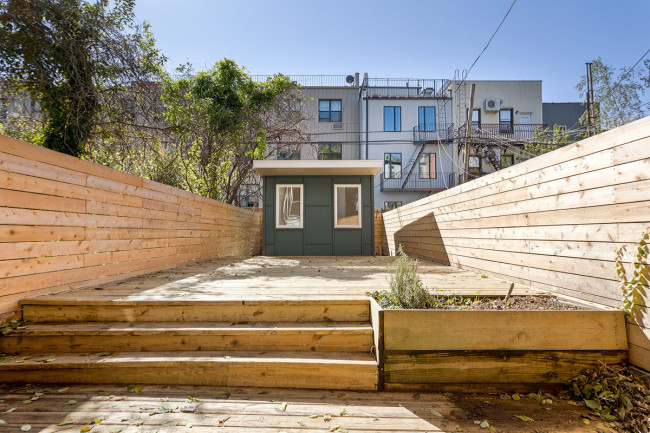What WFH buyers and renters should consider when apartment hunting
- New condo developers are designing units with flexible spaces or dedicated home offices
- Older units may offer more square feet to carve out a workspace in a bedroom or closet
- Be on the lookout for updated wiring, high-speed internet, soundproofing, and natural light

Unit 3C at Calvert Villas in Prospect Heights is a 1,080-square-foot, flex three bedroom listed for $1.23 million. The additional bedroom can be used as an office.
These days, searching for an apartment to buy or rent usually means looking for a new home and a home office. After all, many New Yorkers work remotely at least part-time—and had to shoehorn "offices" into spaces meant for other things when the pandemic hit. But WFH is here to stay, so it's worth being intentional about finding a place that strikes a harmonious work-life balance.
Fortunately, new developments recognize this new normal in creating units with flexible spaces or dedicated home offices.
Not into new? Older co-ops, condos, and rental buildings often have more square feet to carve out a workspace.
As with any apartment search, the size, layout, and location matter most, but those parameters take on even greater significance when spending most of your time at home.
"It's not always just about what you can find in your own residence; it's also about looking at the building and the neighborhood," says Bruce Henderson, a broker at The Corcoran Group.
Read on for those and other key considerations to keep in mind when chalking up potential apartments.
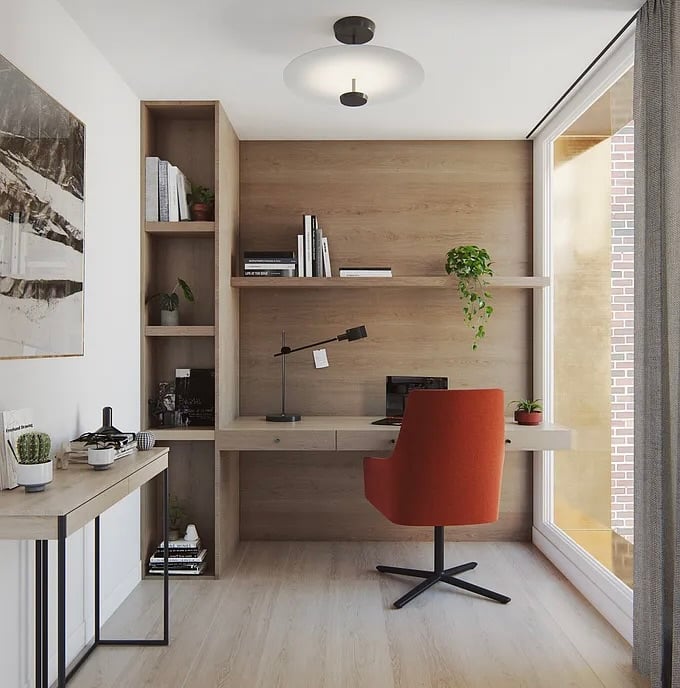
Don't let size be a dealbreaker
Square footage matters, of course—especially when the apartment value is based on price per square foot, says Steven Gottlieb, an agent at Coldwell Banker Warburg. But bigger is only better if you can put that extra space to good use.
Henderson says a lot of clients are drawn to big prewar co-ops because of the charm and history and also because you usually get more square footage for the buck in which to carve out a WFH space.
"It can get more challenging in some buildings built prior to the pandemic, but then it comes down to being able to convert part of a closet," he says. (Lots more on closets below.)
Recent buildings, however, are doing the legwork for you—so you may want to limit your search to these WFH-centric constructions.
For example, each unit at Hendrix House in Kips Bay features a custom-designed office with a built-in desk and shelving system—including a tiny studio (shown above). The luxe condo also has a co-working space and resident lounge (scroll down for a photo) should you tire of your own four walls.
And at the recently launched boutique condo building Calvert Villas in Prospect Heights, one line features smaller units with two bedrooms for buyers in need of a home office, as shown at top.
According to Henderson, who is representing the project, "these are less than 900 square feet and cost around $800,000 versus over 1,000 square feet and starting at $1 million. Buyers would often ask for a large one bedroom, thinking that was the only option in their budget, so we used that insight to influence the design," he says.
Similarly, the three-bedroom units are sized and priced in line with standard two bedrooms for the same reason.
If you—like many New Yorkers—are juggling parenting with working from home, the overall size will be paramount to ensure you can focus in one space while your kids can do their thing in another. Then having a spare bedroom to devote to WFH might be the only practical solution.
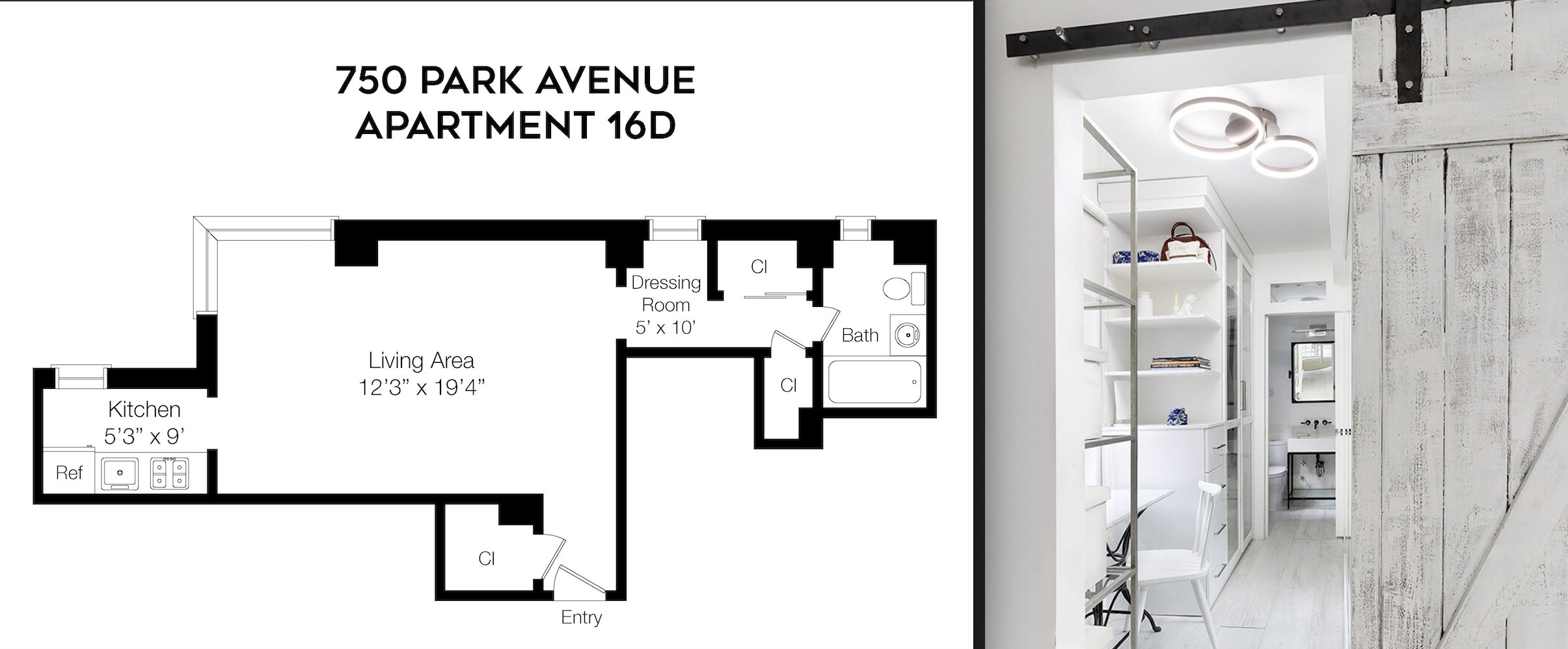
Pay more attention to the layout
Sure, nabbing a place with a spare bedroom might be the dream, though that's typically beyond many people's budget. Instead, look for floor plans that lend themselves to some creative rethinking.
"In terms of working from home, layout matters a ton, especially in urban areas where space is a premium," Gottlieb says. "An architect with some vision can find and utilize all sorts of nooks and crannies to build out shelving or even a desk."
He adds that a large closet may work even better for an office setup than an awkwardly shaped small room. Or you can transform a hallway into an office, hiding it behind a sliding barn door (see floor plan and photo below).
Henderson agrees, saying closets are often the best solutions, including at Calvert Villas, where the primary bedroom's WIC is large enough to stick a small desk next to the window and still have a decent-sized, built-in area for clothes.
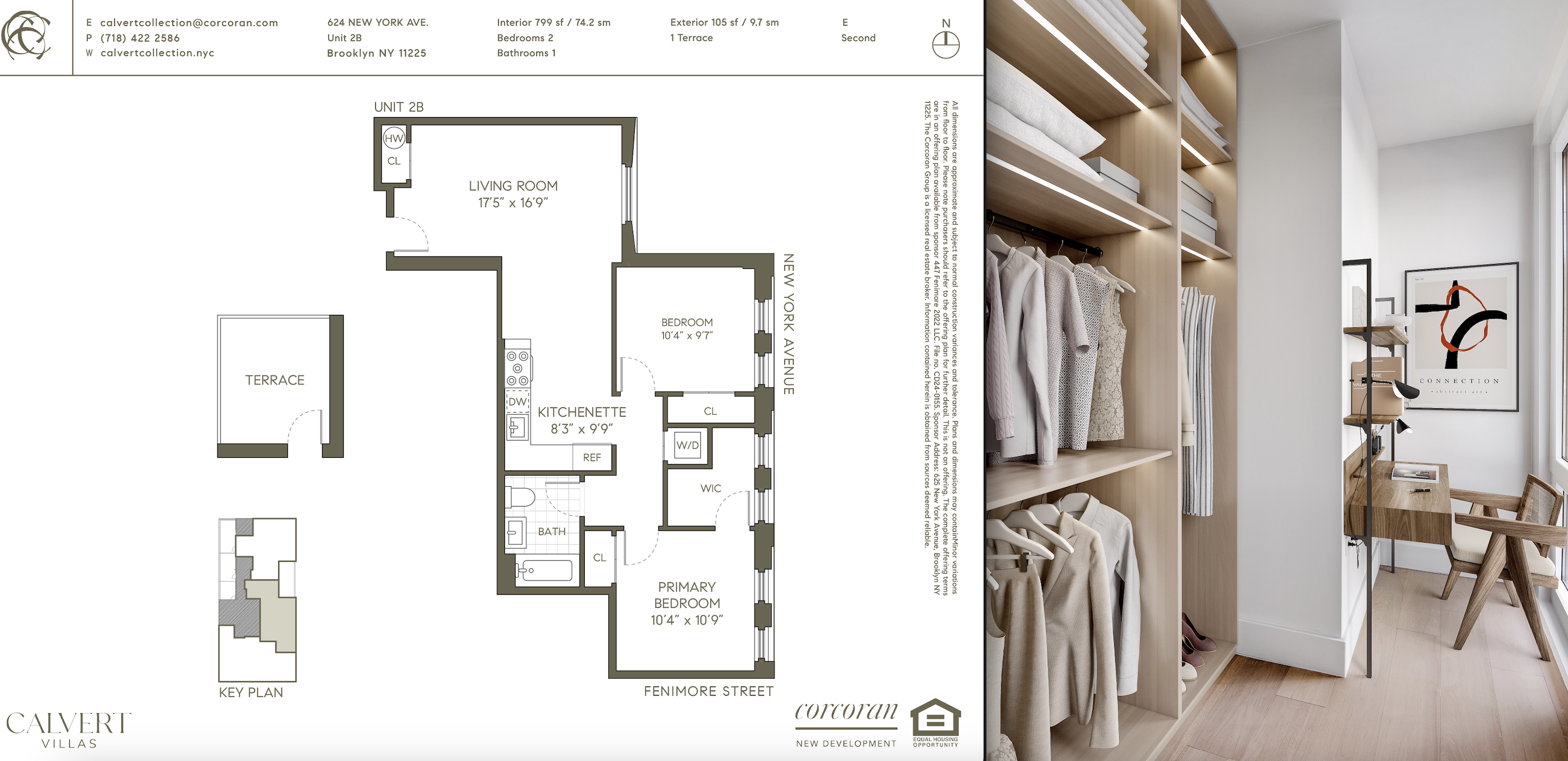
He did something similar in his own former 2008 condo building. "I went to a closet-system store and carved out a third of the coat closet for a desk and filing cabinet underneath that matched the rest of the storage. What was so great is that I could shut the door at the end of the day, which was amazing psychologically."
He once hung a desk in the entrance vestibule of a former alcove studio, too. "It was great because it wasn't visible from the rest of the place," he says.
Parisa Afkhami, an agent at Coldwell Banker Warburg, goes even further by saying you don't even need a 24/7 designated workspace. "A dining table can make a great computer desk," she said.
And you can stash your papers and office supplies in an attractive credenza or other hidden storage. Remember: Having everything organized will minimize stress day in and day out.
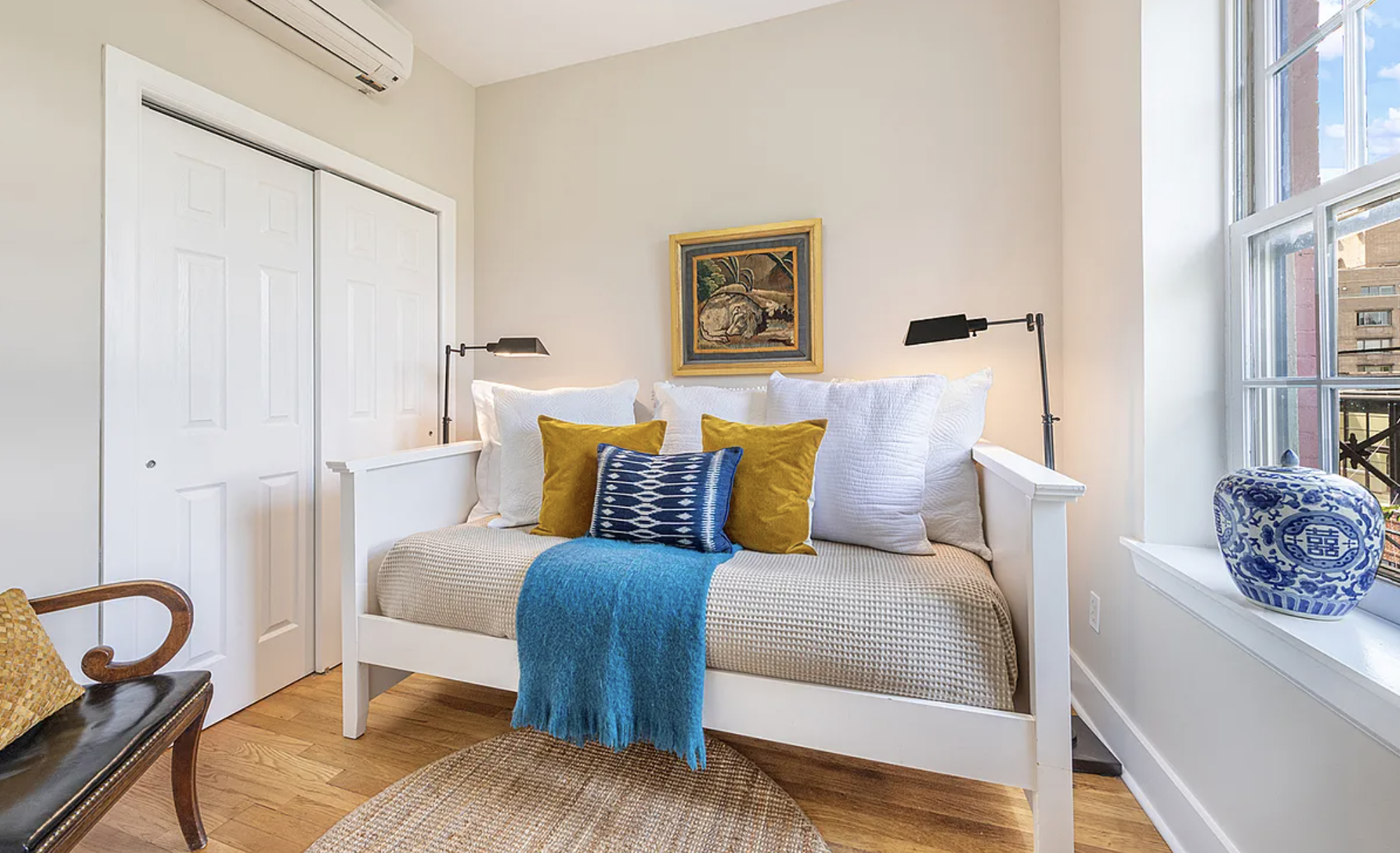
Plan for good working conditions
Having reliable high-speed internet is a must these days and pretty much a given at new developments but hit or miss at older ones.
"I think this is the most important factor, followed by noise level," Afkhami says. "Double-paned windows are an asset. If you are on a corner or interior of two busy avenues, there will be noise, but it can also be buffered by good windows or sound machines to muffle noise," she says. You may also want to invest in soundproofing.
Speaking of windows, expansive ones that get lots of natural light and provide a nice view are a huge asset. Read: "What to know about upgrading the windows in your NYC apartment or townhouse" for more on this renovation.
"Some buyers and tenants who plan to do computer work and video calls throughout the day prefer to place their desks at a window with southern exposure to enjoy bright, mood-enhancing light and avoid appearing in shadow during calls," says Andrea Saturno-Sanjana, a broker at Coldwell Banker Warburg. "In contrast, those doing design work at an architect's desk or a drafting table prefer a northern exposure for steady light throughout the day with reduced glare."
Moreover, think hard about working all day in a small apartment with baseboard heating in the winter and window units in the summer or whether finding a place with central air and heat is a dealbreaker.
Christopher Hall, an agent at Coldwell Banker Warburg, says knowing the condition of the electrical system is very important depending on what kind of setup you'll need.
"If your work requires multiple monitors, devices, and equipment, then an outdated electrical system may not be able to handle it without tripping the breaker. Upgrading the electrical system can be expensive, so it's best to know the status beforehand," he says.
Search for "updated electrical" or "new wiring" in listings and ask the seller's agent. Having a licensed inspector or electrician look at it will give you the clearest picture of what you're working with, he adds.
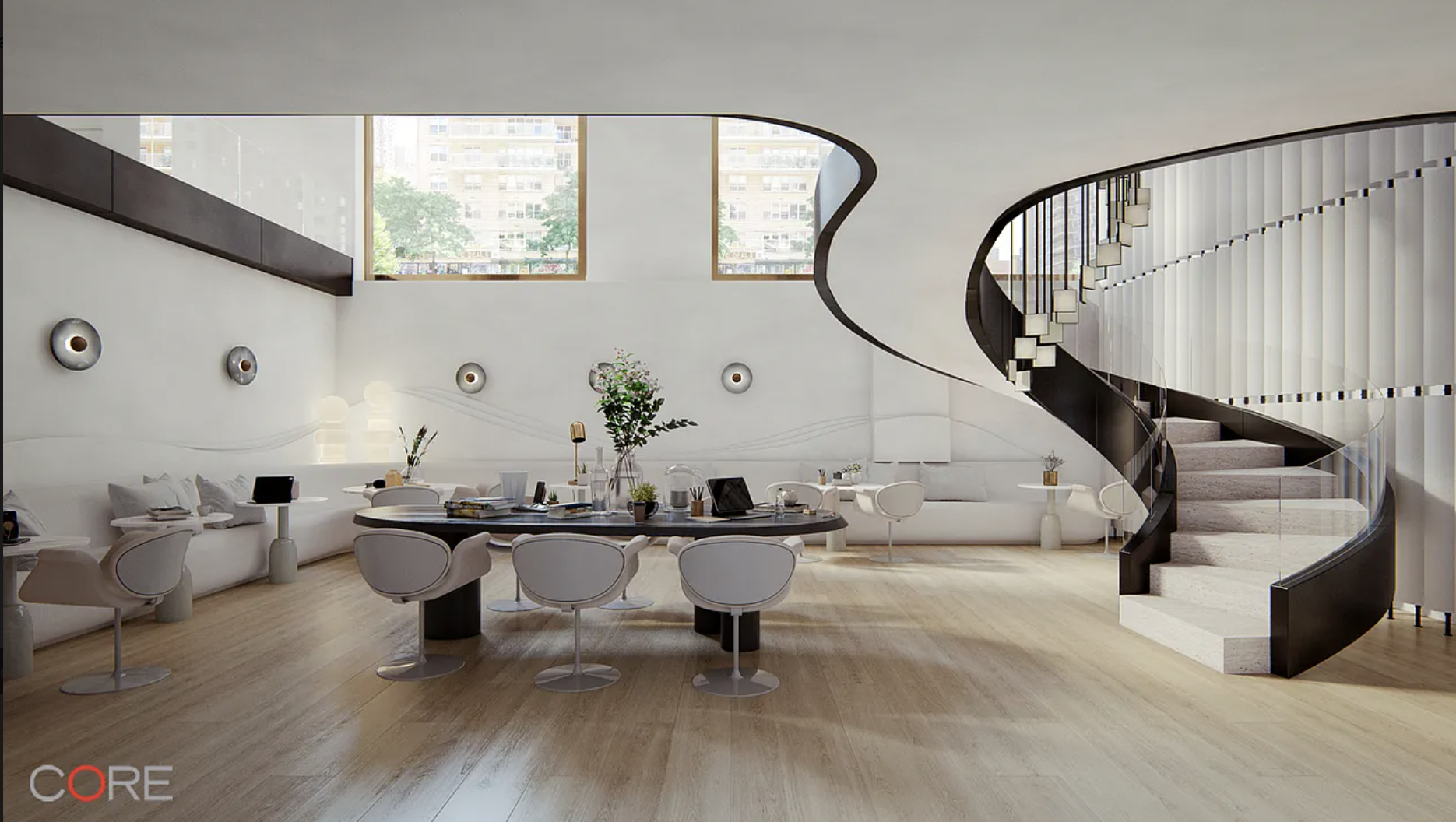
Evaluate the building
Luxury condos and rentals often come with amenity packages conducive to working from home, including an on-site fitness center for quick workouts and a kid's play area. Increasingly since the pandemic, developments are adding co-working spaces and meeting areas plus resident lounges for "water cooler" moments.
Other creature comforts include on-site laundry (or your own washer/dryer) and a secure package room.
According to Henderson, one big trend is replacing "dumb" intercoms with AI-driven systems where residents can let delivery people in via an app or virtual doormen. "The buildings have become more adaptive and accommodating with these kinds of services," he says.
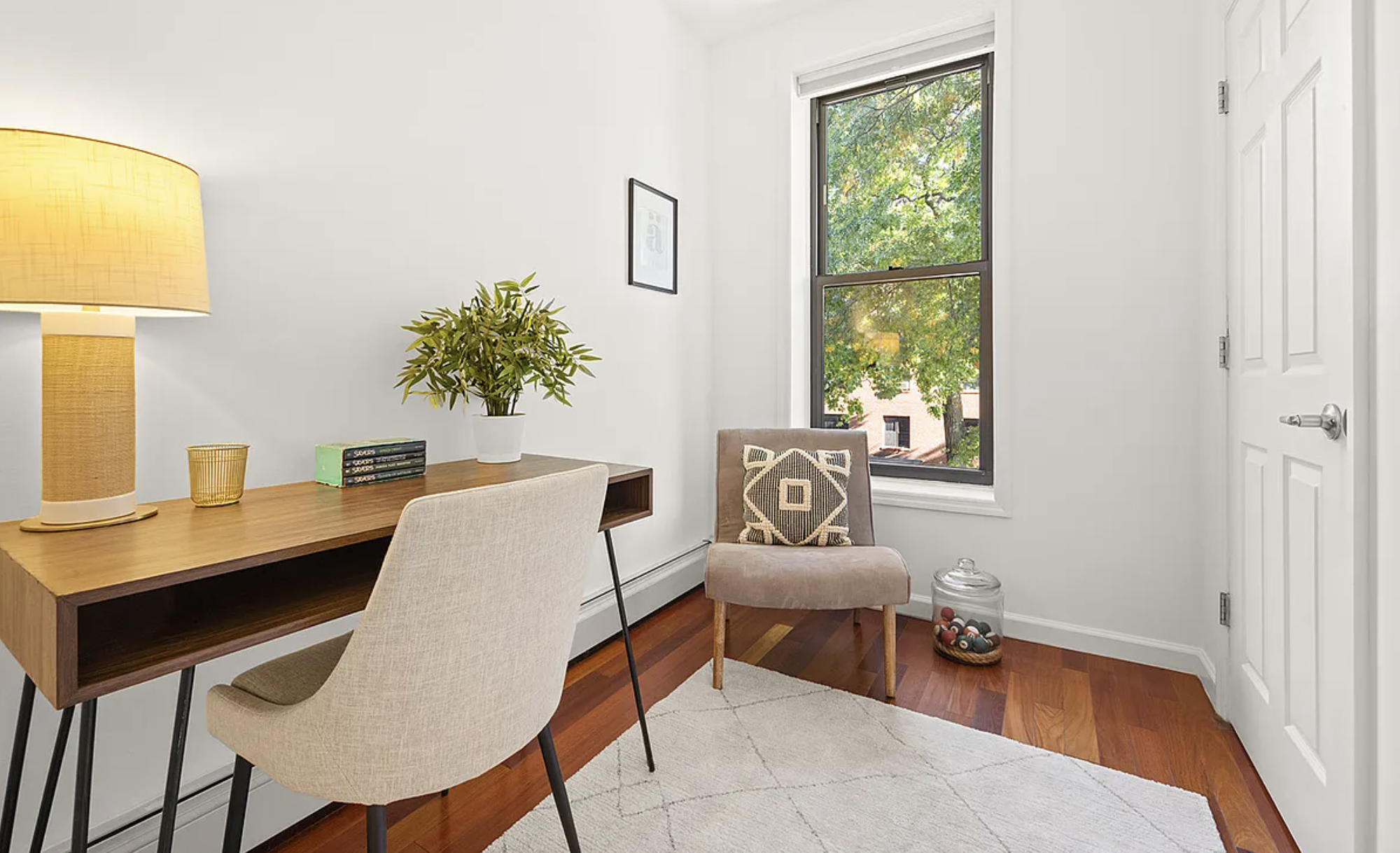
Consider the nabe
It's a good idea to visit the area at different times of the day to gauge the street noise and traffic level. Be on the lookout for lots of ongoing (or potential) construction projects in particular.
Be sure to scope out nearby conveniences, too. Is there a copy/shipping service or post office? Are there places to run errands during the day? A coffee shop with fast wifi is handy when you need (or want) to be out of your place for some other reason.
"Transportation is always important to everyone, even if you are not commuting every day," Henderson says.
The same can be said for being within walking distance or a quick subway ride to take and pick up your kids from school.
Saturno-Sanjana says many people prefer to be near a park or a gym as opposed to having a gym in the building "so they can take active breaks throughout the day while getting a change of scenery, fresh air, and interaction with other people."
Pets are another huge consideration when working from home—you are suddenly at their beck and call all day long.
"A lot of people got dogs during the pandemic, and in many cases multiple dogs, which is the case at my own building. There's nothing like having your dog bark or jump on our lap in the middle of a Zoom call," Henderson says.
He scored a local dog sitter that offers pick-up and drop-off services, but being close to dog runs or parks for mid-day jaunts or a doggie daycare facility for especially busy days are other ways to boost your productivity and keep the peace at home.
You Might Also Like





















